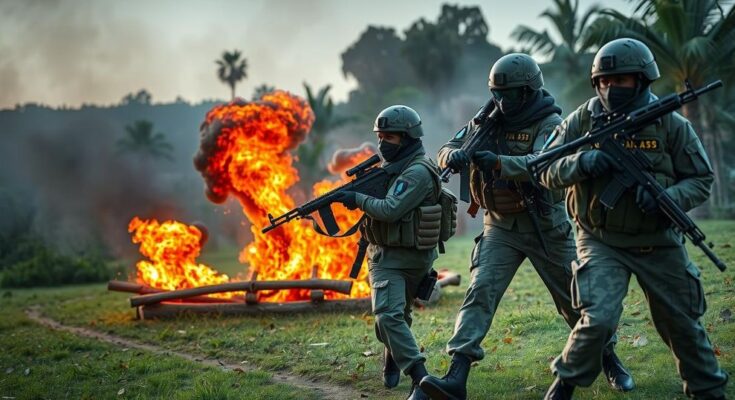In December 2024, fighting in North Kivu, DRC, displaced over 290,000 people, with total displacements reaching 2.7 million. The conflict involves the M23 rebel group and ADF, exacerbating the humanitarian crisis. Territorial control changes in Masisi indicate ongoing violence and instability, emphasizing the need for urgent humanitarian action.
In the Democratic Republic of Congo’s North Kivu province, over 290,000 individuals were displaced in December 2024 due to intense clashes in the Lubero region, according to the latest United Nations Office for the Coordination of Humanitarian Affairs (OCHA) report. The ongoing conflict involving the M23 rebel group and the Allied Democratic Forces (ADF) has compounded the humanitarian crisis, raising the total number of displaced individuals in North Kivu to 2.7 million, reflecting a significant escalation in violence and insecurity.
The deteriorating situation in Lubero stems from the resurgence of fighting linked to the M23 movement and the continued attacks from the ADF, which has been notorious for instilling fear among the local populace since its integration with the Islamic State in 2019. The conflict has intensified following failed peace negotiations in Luanda in December. The strategic town of Masisi has seen multiple changes in control between the M23 and the Congolese Armed Forces, with ongoing efforts to regain territorial dominance essential for regional stability.
The ongoing conflict in North Kivu, particularly between the M23 and ADF, stems from complex historical tensions involving regional power dynamics and external influences, notably from Rwanda. The M23 insurgency is reportedly supported by Rwandan military resources, exacerbating the conflict and humanitarian needs. In this context, over 2.7 million internally displaced persons in North Kivu seek safety amidst escalating violence and a grim humanitarian landscape, prompting urgent humanitarian responses from the international community.
In summary, the humanitarian situation in North Kivu, particularly due to the armed conflicts involving the M23 and the ADF, has resulted in a staggering displacement of over 290,000 people in just one month. This violence not only underscores the complexities of regional conflicts but also highlights the urgent need for sustained humanitarian assistance and a resolution to the escalating unrest that continues to hinder peace and security in the Democratic Republic of Congo.
Original Source: www.fides.org




